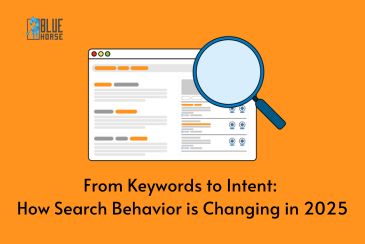How to Reclaim Control of Your Brand’s Image with a D2C Store
In today’s highly competitive marketplace, where customers are bombarded with countless brand messages and experiences, having control over how your brand is perceived is more important than ever. While traditional retail and third-party platforms have long been essential in connecting brands with customers, they often come with limitations that can hinder your ability to fully control your brand image. This is where a Direct-to-Consumer (D2C) store can make all the difference.
A D2C model allows brands to sell their products directly to consumers, bypassing intermediaries such as retailers or distributors. This provides an incredible opportunity for businesses to create a direct relationship with their customers, ensuring that every interaction—whether it’s through the website, customer service, or packaging—is aligned with the brand’s vision and values. In this blog, we’ll explore how launching a D2C store can help you reclaim control of your brand’s image and build a more cohesive, compelling brand experience.
1. The Power of Direct Interaction with Consumers
One of the most significant advantages of a D2C store is the ability to engage directly with consumers. Traditional retail models often involve multiple layers of intermediaries, such as wholesalers, distributors, and third-party retailers, each of which has some influence over how your product is presented and perceived. With D2C, you can control the entire customer journey, from the first point of contact to post-purchase follow-ups.
Consistent Brand Messaging
When you sell through third-party retailers, you often have limited control over how your brand is portrayed. Retailers may use different branding strategies, promotions, or packaging, all of which can impact the way your brand is perceived by the consumer. With a D2C store, you ensure that your brand messaging remains consistent across all touchpoints. Whether customers are browsing your website, reading your blog, or engaging with your social media accounts, you can create a seamless brand experience that reflects your core values, mission, and personality.
By owning the entire customer interaction process, you can set the tone for how your brand is communicated and ensure that your message aligns with the image you want to portray.
Personalized Experiences
A D2C store also allows for greater personalization. Direct engagement means you can gather valuable data on customer preferences, behaviors, and purchase histories. With this data, you can create tailored experiences that resonate with individual customers, making them feel valued and understood. Personalization can range from customized product recommendations to personalized email marketing campaigns. This level of attention to detail fosters stronger relationships with consumers and helps them connect with your brand on a deeper level.
2. Full Control over the Customer Experience
The customer experience is a crucial part of your brand’s image. In traditional retail, your influence over the customer experience is limited. For instance, a third-party retailer may not provide the level of customer service you expect, or they may present your products in a way that doesn’t align with your brand’s identity.
With a D2C store, you have complete control over the entire customer experience, including website design, navigation, checkout processes, customer service, and even post-purchase follow-up. Every aspect of the user journey is yours to design, ensuring that it aligns with your brand’s values.
Tailored Website Design
A D2C website is your digital storefront, and its design plays a significant role in communicating your brand’s image. When you manage your own e-commerce site, you can craft an aesthetically pleasing and user-friendly website that captures your brand’s essence. From choosing colors and typography to deciding how products are presented, a D2C store allows you to create a cohesive and branded experience from start to finish.
Additionally, the website’s user experience (UX) can be optimized to reflect your brand’s commitment to quality and customer satisfaction. A smooth, intuitive interface with fast load times and easy navigation contributes to a positive impression of your brand. With D2C, every aspect of the online shopping experience can reinforce your brand identity and create lasting impressions.
Branded Packaging
Packaging is often the first physical interaction customers have with your brand. With D2C selling, you have full control over the packaging that your products are shipped in. This provides an opportunity to enhance the unboxing experience, making it feel special and reinforcing your brand’s image. From custom-designed boxes to eco-friendly materials, you can make packaging decisions that reflect your brand’s personality and values. Thoughtful packaging can also help reduce returns, as it helps to set the right expectations for the customer.
Customer Service Excellence
In a D2C store, customer service is entirely in your hands. Rather than relying on third-party customer service departments, you can directly manage how customers are supported. From live chat on your website to easy-to-find contact information, you can provide fast and effective support that enhances the customer experience.
You can also handle returns, exchanges, and complaints with personalized care, ensuring that every customer interaction aligns with your brand’s commitment to customer satisfaction. A consistent and exceptional customer service experience will leave a lasting impression and help build customer loyalty.
3. Real-Time Feedback and Brand Improvement
Selling directly to consumers also opens up opportunities for real-time feedback, which is essential for maintaining and improving your brand’s image. With D2C selling, you can collect valuable insights from customers via reviews, surveys, and social media comments. This feedback helps you understand how consumers perceive your products, services, and overall brand.
Customer Reviews and Testimonials
One of the most powerful tools for controlling your brand’s image is customer feedback. Through a D2C platform, you can encourage reviews and testimonials, which provide social proof and help shape your brand’s reputation. Positive reviews on your website or third-party review platforms can strengthen your brand’s image, while negative feedback offers insights into areas for improvement.
You can also respond directly to customer reviews, demonstrating that you value feedback and are committed to improving. This two-way communication not only helps improve your offerings but also shows that you are attentive to customer needs, which is essential for brand loyalty.
Continuous Improvement and Adaptation
The ability to quickly respond to customer feedback is another key benefit of having a D2C store. Instead of waiting for third-party retailers to inform you about product issues or customer complaints, you can immediately address any concerns that arise. This responsiveness contributes to a positive brand image, as customers appreciate brands that listen to them and act swiftly to make improvements.
In the D2C model, you can also use data analytics to track customer behavior, identify trends, and make data-driven decisions about product development, marketing strategies, and customer engagement. This constant feedback loop enables you to adapt and refine your brand’s approach to meet changing consumer demands.
4. Establishing Stronger Brand Loyalty
Brand loyalty is one of the greatest assets a company can build, and D2C stores offer significant opportunities to foster this loyalty. By interacting directly with consumers, D2C brands can create stronger emotional connections with their customers, leading to repeat business and long-term success.
Loyalty Programs and Exclusive Offers
A D2C store provides the perfect platform to implement loyalty programs that reward repeat customers. By offering discounts, early access to new products, or special promotions for members, you can incentivize customers to continue purchasing from your brand. This not only drives sales but also helps reinforce your brand’s identity as one that values its customers.
Additionally, offering exclusive products or services to direct customers can further enhance the sense of belonging. Customers are more likely to remain loyal to brands that offer them unique experiences or benefits unavailable through third-party retailers.
Building an Engaged Community
D2C selling also allows you to build a community around your brand. Through content marketing, social media engagement, and personalized communications, you can create an interactive space where customers can share their experiences, offer feedback, and engage with your brand on a deeper level.
This sense of community fosters a strong emotional connection with your brand, encouraging consumers to become advocates. Brand advocates are more likely to recommend your products to others, driving organic growth and enhancing your brand’s image.
5. Greater Flexibility in Brand Strategy
With a D2C store, you have greater flexibility to experiment with your brand strategy. Traditional retail channels often come with rigid guidelines that limit your creative freedom. For example, third-party retailers may impose restrictions on how your products are displayed or marketed. With D2C selling, you are free to experiment with new marketing campaigns, branding elements, or product launches without needing approval from intermediaries.
This flexibility allows you to stay agile in a fast-moving market, adjusting your strategy as needed to keep up with consumer trends, new technologies, and competitive pressures. It also allows you to stay true to your brand’s core identity, ensuring that your messaging remains consistent and aligned with your long-term vision.
Conclusion
Reclaiming control of your brand’s image is essential for long-term success, and a D2C store provides the perfect platform to do so. By eliminating intermediaries, you gain full control over how your brand is presented, from the customer experience and product packaging to the messaging and marketing strategies. The ability to engage directly with consumers allows you to build stronger relationships, gather real-time feedback, and create personalized experiences that resonate with your audience.
Through improved customer service, brand loyalty programs, and real-time adaptation to feedback, a D2C store can help you maintain a strong, positive brand image that sets you apart from competitors. As more consumers seek authentic, direct connections with the brands they love, D2C selling offers an invaluable opportunity to shape and maintain your brand’s reputation for years to come.





















Comments